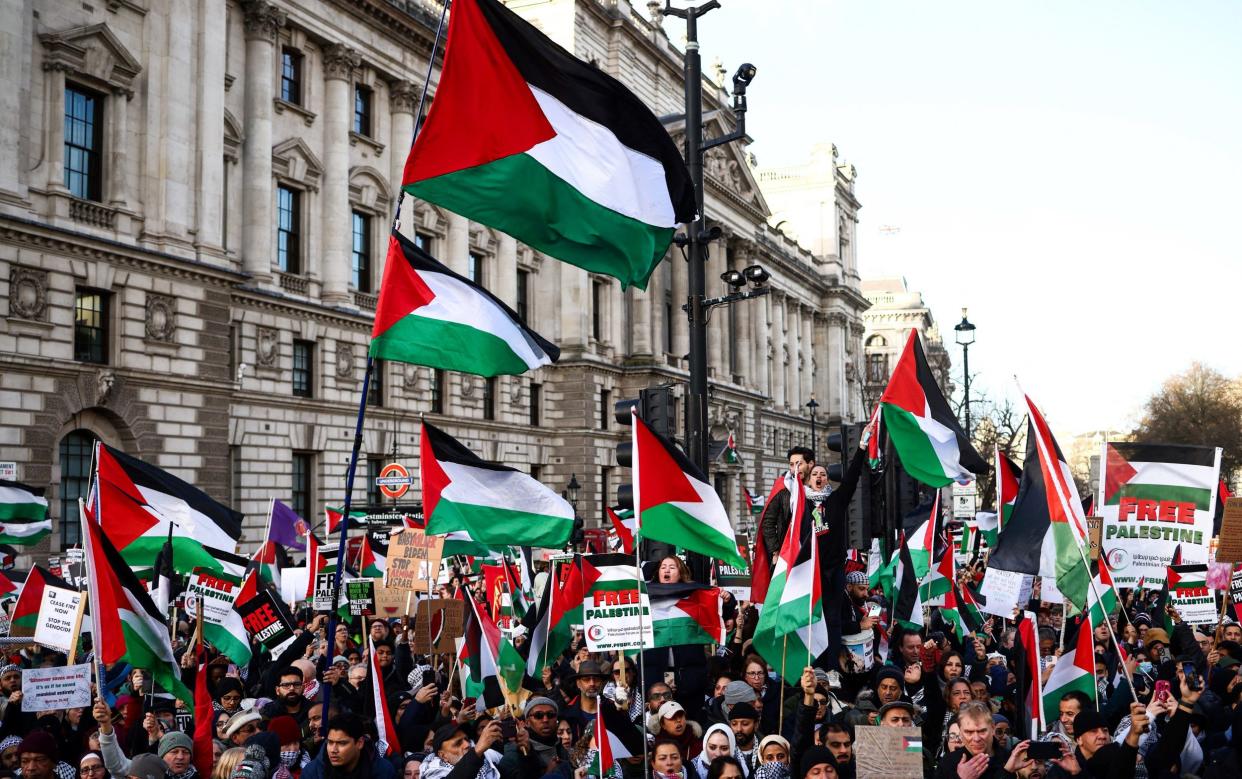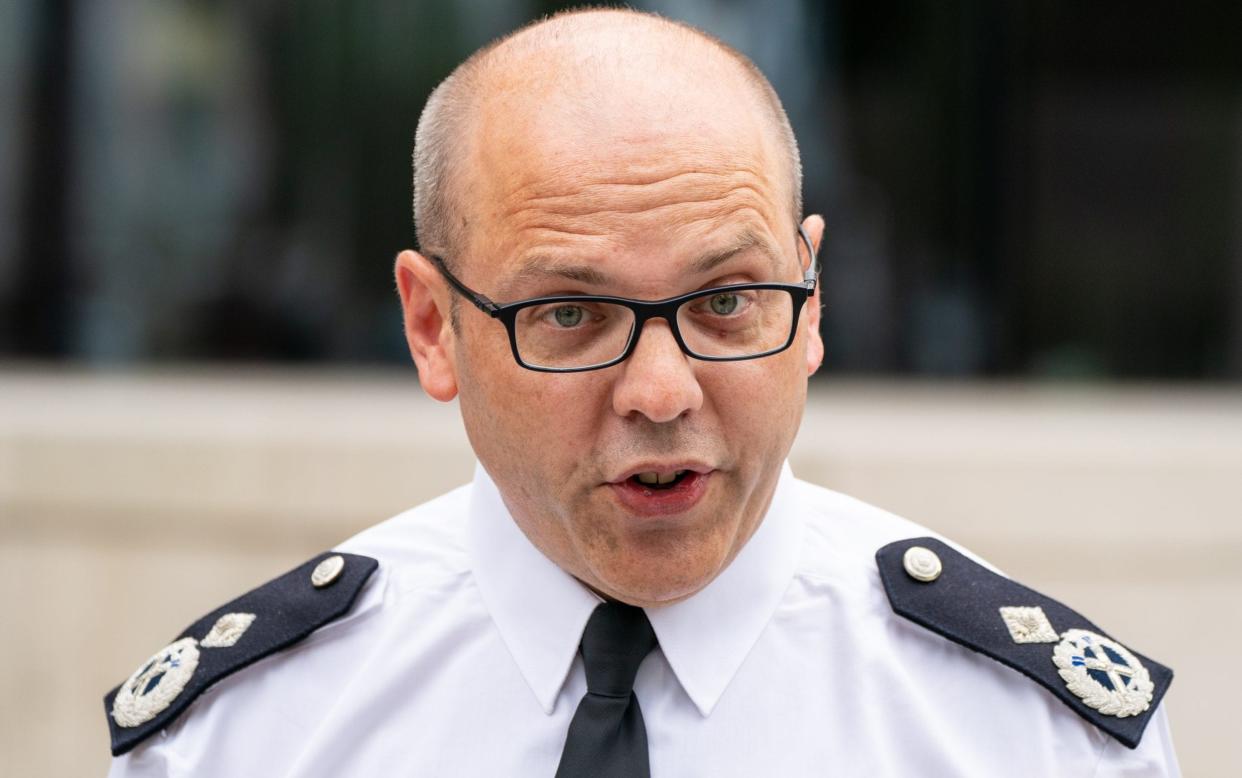Met admits mistakes in policing of pro-Palestinian protests

A senior Scotland Yard officer has admitted the force made mistakes in its handling of pro-Palestinian protests.
Matt Twist, the assistant commissioner of the Met Police responsible for public order policing, said the force “didn’t get everything right, particularly in the early stages in October”.
In an interview with the Policy Exchange think tank for a report on the protests, published on Monday, Mr Twist cited the decision not to immediately arrest demonstrators shouting “jihad”.
“On occasion we did not move quickly to make arrests, for example, the man chanting for ‘jihad’, which was a decision made following fast-time advice from lawyers and the Crown Prosecution Service,” he said.
However, Mr Twist said police had developed their tactics since then to be faster and more decisive, adding: “We are now much more focused on identifying reasonable grounds for arrest, acting where needed and then investigating, so in these circumstances it’s very likely arrests would be made more quickly now.”
He also rejected accusations of “two-tier or differential policing” in how the Met handled the pro-Palestinian protests, claiming instead that the force had had an “infinite number of tiers of policing”.
“In public order policing, we are neutral as to the cause that is being protested. We base policing tactics on the threat, harm and risk based on the information and intelligence available to us,” he said. “In that sense, there is no such thing as two-tier or differential policing – there are, in fact, an infinite number of tiers of policing, depending on the threat, harm and risk.”
The Policy Exchange report, published ahead of a Government review of policing protests, also revealed that town and city centres where there were protests had effectively become “no-go” zones for many members of the public.
More than two-thirds of 1,500 adults polled for the think tank said they would drop plans to travel into towns or city centres with small children, or elderly or disabled relatives if there were a major protest taking place.
The report said that too often, the police, prosecutors, the Government and the courts had wrongly failed to prioritise the rights of members of the public over those of disruptive protesters.
More than 80 per cent of the people polled said police should intervene when protesters damaged private property, approached passers-by to shout at or threaten them, or held banners with racist or derogatory slogans.
More than three-quarters said police should also intervene when protesters obstructed roads, preventing traffic passing, blocked access to public transport or people’s workplaces or climbed on buildings or public monuments.

The report revealed that the cost of policing the protests in London between October 2023 and June this year was £42.9 million.
The operations saw 51,799 police officer shifts deployed and diverted from covering ordinary crime issues in London, such as knife crime, violence against women and girls, and antisocial behaviour. A further 9,639 police officer shifts were diverted into London from elsewhere in the country.
Over the first six months of protests, each of the major marches – which have been held regularly in the capital since October – have taken over an average of 3.6 kilometres of major London streets for an average of five hours at a time.
The report made more than 20 recommendations, such as giving police greater powers to prohibit protests if there is a risk of serious public disorder, including allowing them to take account of the cumulative disruption from successive demonstrations.
It said protesters should also be required to give 28 days’ notice to allow more time for police and other agencies to prepare.


